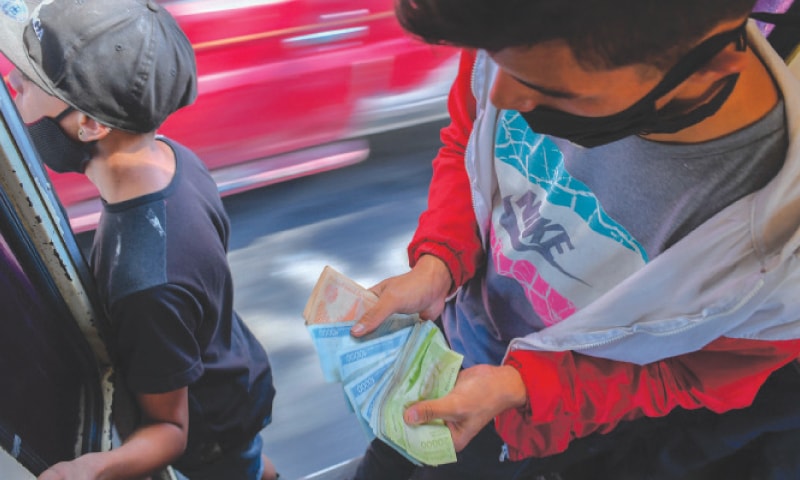The burden of state-owned enterprises
There are 204 state-owned enterprises (SOE) in Pakistan. In 2016-17, their cumulative loss exceeded their cumulative profit with 77 makes a loss of Rs453bn while 99 were making a profit of Rs262bn. The Oil and Gas Company Limited and the National Highway Authority were the top profit- and loss-making entities respectively. At a cost of employing approximately half a million people, these SOEs add an average burden of Rs400bn on the national exchequer each year causing a rise in the fiscal deficit. Moreover, the excessive commercial lending guaranteed by the government to the SOEs crowds out private investment.
(Adapted from “Why state should not be in business: a case of Pakistan Steel Mills,” by Beenish Javed, published in May 2020 by the Policy Research Institute of Market Economy)
Vaccinations vs cases — are we winning?
The number of Covid-19 vaccinations globally has surpassed the total number of confirmed cases. According to the vaccine tracker of the Financial Times, the total number of doses administered by last week climber to 105m while the number of cases was 103.5m. While vaccination rates are accelerating rapidly, the rise in cases is slowing, although that is due to measures other than vaccines because they have not yet affected transmission in most places. Admittedly, the real number of infections is likely to be many times higher than the number verified by diagnostic tests. While vaccines will soon make a big difference to transmission, at least in wealthy countries, it may be till 2023 or 2024 before everyone who needs it will be able to receive one.
(Adapted from “Vaccine milestone as global Covid jabs pass number of confirmed cases” by Clive Cookson and Alan Smith, published on Feb 3, 2021 by the Financial Times) Fuelling up with ocean trash
A French ocean adventurer, Yvan Bourgnon, and his team have designed a yacht which he says can scoop up plastic garbage to stop it blighting the world’s oceans, and coverts the same waste into fuel to help power the boat. The ship, Manta, is a 183-foot long catamaran propelled by a combination of high-tech sails and electric motors. As yet, it exists only on the drawing board but Bourgnon hopes to it into a working prototype that can be launched in 2024. As the boat moves through the water, its conveyor belts will scoop up waste, sort it, then feed it into a burner. That will melt the plastic, produce gas which drives a turbine, and in turn generates electricity for the boat’s system to use. That electricity, along with solar cells and wind turbines on the boat’s deck, will make the boat 70pc self-sufficient in energy.
(Adapted from “This concept yacht has a surprising power source,” by Lucien Libert, published on Feb 02, 2021, by the World Economic Forum)
Apple vs Facebook — when tech giants snipe
It is tough to pinpoint exactly where things with Facebook and Apple went wrong, but like so many relationships gone sour, the first signs of real trouble looking liked petty sniping. In March 2018, Facebook was in the midst of a scandal involving Cambridge Analytica. When asked what he would do if he was in Facebook CEO Mark Zuckerberg’s shoes, Apple CEO Tim Cook said: “I wouldn’t be in this situation”. A week later Zuckerberg implied Apple’s products were just for “rich people”. Competition in Silicon Valley can be brutal, but Apple and Facebook have had a mutually beneficial relationship in the past. But now they are headed on a collision course as competition heats up. “Apple has every incentive to use their dominant platform position to interfere with how our apps and other apps work, which they regularly do,” Zuckerberg said in January.
(Adapted from “The privacy spat between Facebook and Apple is just the beginning,” by Kurt Wagner and Murk Gurman, published on Feb 3, 2021, by Bloomberg Businessweek)
Published in Dawn, The Business and Finance Weekly, February 8th, 2021
















































Dear visitor, the comments section is undergoing an overhaul and will return soon.